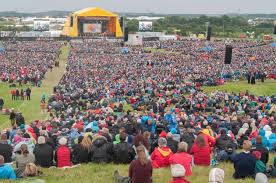
记忆方法
为了记忆“jamboree”,可以使用联想记忆法。想象一个“jam”充满了欢声笑语的“booree”场景,就像是一个热闹非凡的大型聚会或者露营活动。将“jam”看作是“噪音”或“混乱”,而“booree”则模拟声音,这样可以帮助你记住“jamboree”这个词表示的是一种热闹的大聚会或露营活动。
以上内容由AI生成, 仅供参考和借鉴
中文词源
jamboree 童子军大会,大型聚会
词源不详,可能来自jam,塞,挤。最初用于指童子军大会,后引申词义大型聚会。
英语词源
- jamboree (n.)
- 1866, represented as typical of American English, perhaps from jam (n.) on pattern of shivaree [Barnhart]. For the second element, Weekley suggests French bourree, a kind of rustic dance. Klein thinks the whole thing is of Hindu origin (but he credits its introduction to English, mistakenly, to Kipling). Boy Scouts use is from 1920. Noted earlier as a term in cribbage:
Jamboree signifies the combination of the five highest cards, as, for example, the two Bowers [jacks], Ace, King, and Queen of trumps in one hand, which entitles the holder to count sixteen points. The holder of such a hand, simply announces the fact, as no play is necessary; but should he play the hand as a Jambone, he can count only eight points, whereas he could count sixteen if he played it, or announced it as a Jamboree. ["The American Hoyle," New York, 1864]
权威例句
- 1. the movie industry's annual jamboree at Cannes
- 在戛纳举行的一年一度的影展
- 2. Unfortunately, we can't go to the jamboree.
- 不幸地是,我们不能去庆祝会。
- 3. It's a next - generation jamboree.
- 2005年:这是一种新一代大露营.
- 4. But not everyone is welcoming the jamboree.
- 不过并非人人都欢迎迪士尼乐园的到来.